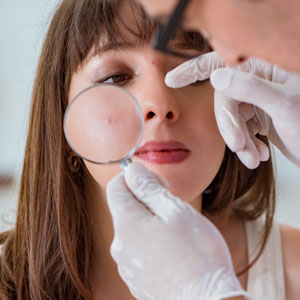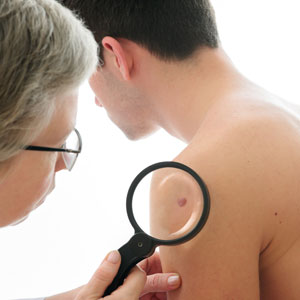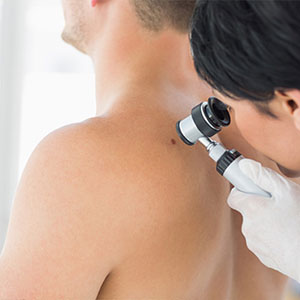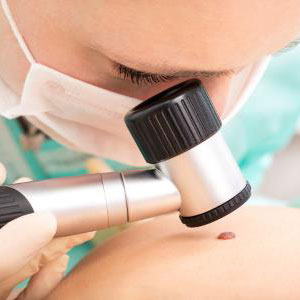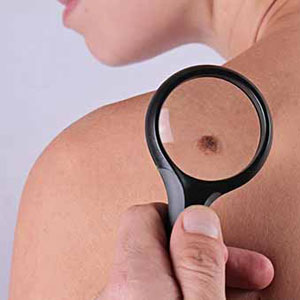As one of our most exposed organs, our skin is constantly affected by environmental elements such as the sun and pollutants. Skin health is also affected by biological factors. While we may be in the habit of observing our skin on an aesthetic level, it is also important that we learn to check our skin for evidence of skin cancer, a condition that has become very prevalent among American adults. Skin cancer is more common than most people think. At this time, as many as one in five adults will be affected by skin cancer, and rates among multiple age groups are on the rise.
There are various forms of skin cancer, not all of which are life threatening. The most serious form of skin cancer, melanoma, is fortunately one of the least frequently diagnosed. What we tend to see more often are Basal Cell Carcinomas (BCCs) and Squamous Cell Carcinomas (SCCs).
Basal cell carcinomas account for the largest percentage of diagnosed skin cancers. Basal cell lesions typically develop on sun-exposed areas such as the hands, arms, legs, feet, chest, neck, face, and scalp. Because this type of skin cancer can look like a pimple or other harmless growth, basal cell carcinomas may remain for some time before diagnosis. Over time, the appearance of a basal cell carcinoma may transform to a scar-like patch or an area of shiny pink skin.
Basal cell carcinoma develops because of exposure to UV rays, whether from direct sunlight, x-ray radiation, or a tanning bed. The risk of basal cell carcinoma is increased in individuals in whose families this type of cancer has been found. Those at a higher risk for any type of skin cancer should receive annual skin cancer screenings with their board certified dermatologist.
The second most prominent form of skin cancer is squamous cell carcinoma. Recognition of this type of skin cancer is vitally important due to the risk of mortality. Caused by UV exposure, squamous cell carcinomas may be found on the extremities, the chest, neck, face, ears, and scalp. These lesions first appear as scaly skin, eventually transforming into bumps that may look like a wart or a persistent sore. The early detection of squamous cell carcinoma is extremely important, as early treatment is ideal for this aggressive condition.
During routine skin cancer screenings, Dr. Koreen will evaluate areas of the skin on all parts of the body using specific instruments for accurate identification. In addition to recognizing basal and squamous cell carcinomas, your dermatologist can identify melanoma, and will closely monitor the appearance of moles. Although the majority of melanomas occur in sun exposed areas, melanoma is a form of skin cancer sometimes not associated with UV exposure, and lesions may develop on non-exposed areas such as the bottoms of the feet. By working with your experienced dermatologist, you can learn how to perform regular home examinations so that you gain the power to guard your own health from skin cancer.
If, during self-examination, changes in a mole are detected, professional evaluation is encouraged. Moles that bleed, are very large, are asymmetrical, multicolored, or have jagged borders are also indicators of abnormal cells, and should be analyzed by your dermatologist.
The good news about skin cancer is that available treatments are very effective at removal. Learn how to protect yourself from skin cancer. The Dermatology and Cosmetic Laser Center can provide skin cancer screenings and treatment. Contact our office for your visit today.














